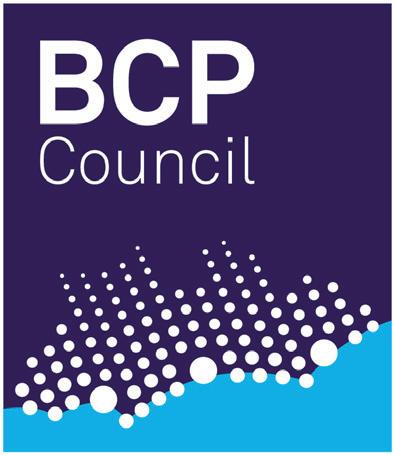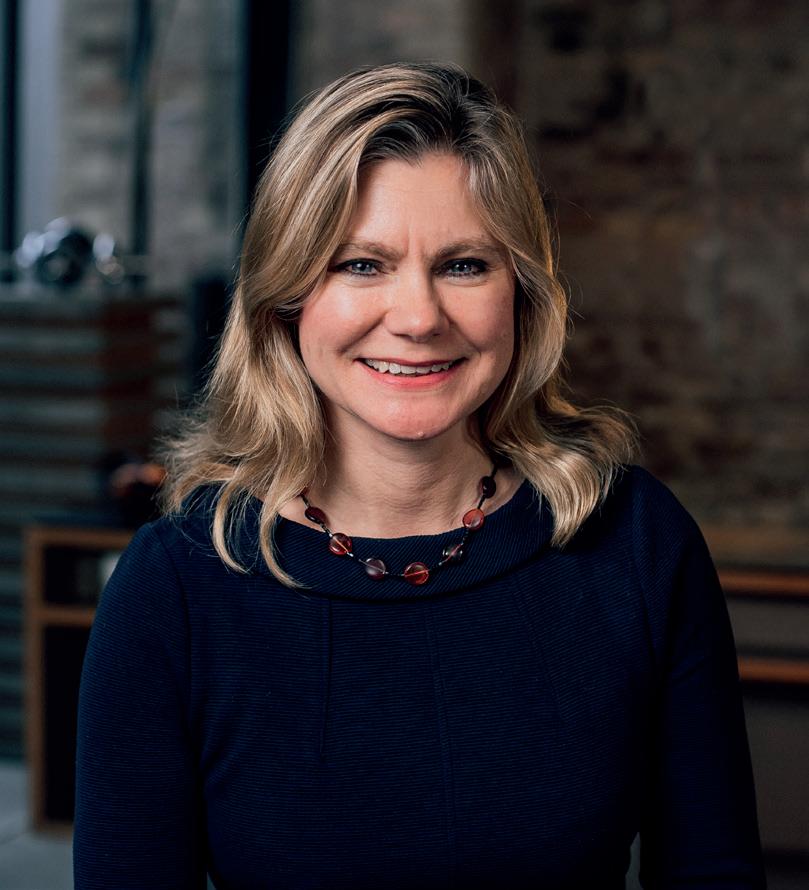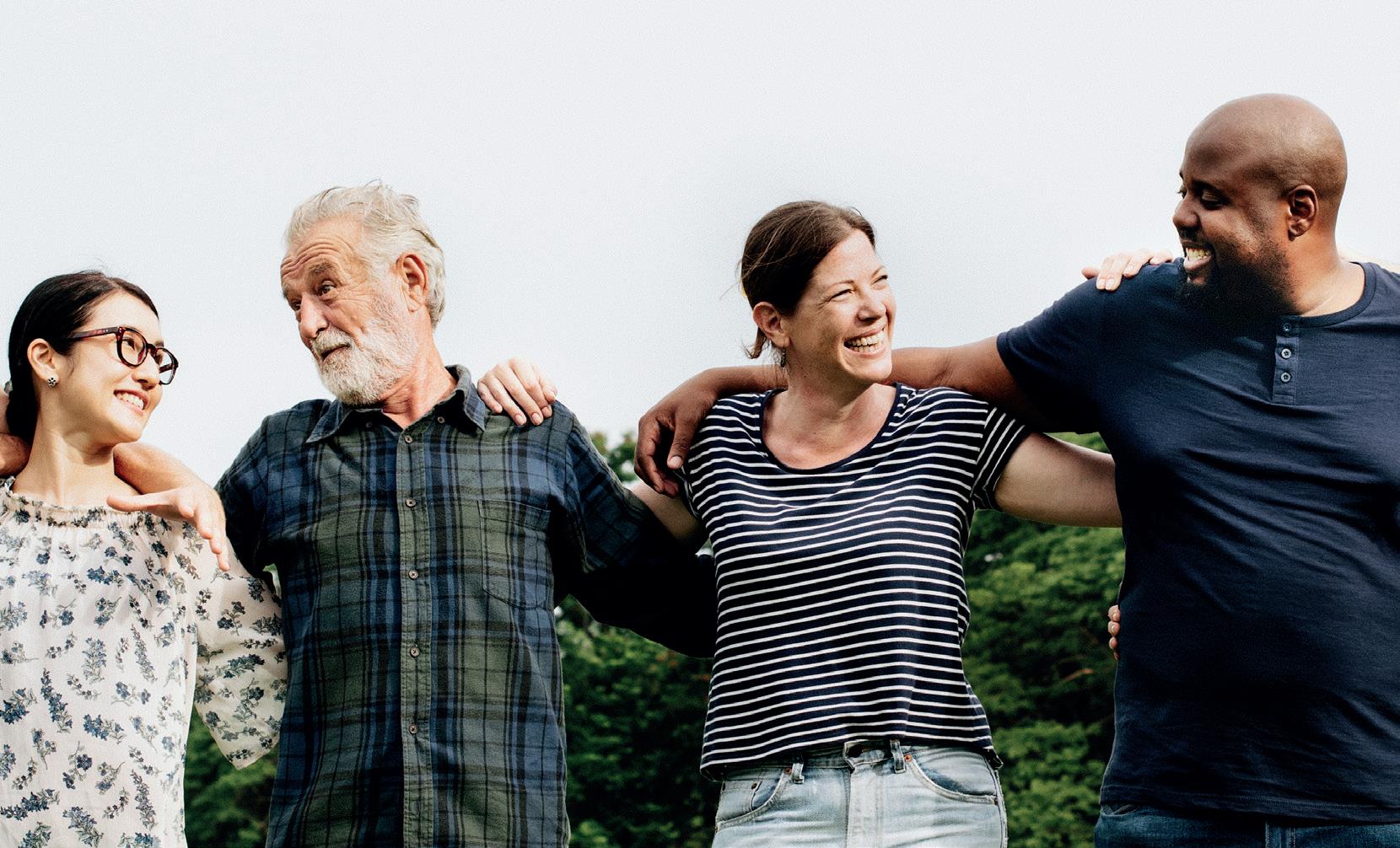The Journey to the Levelling Up Goals
In 2015, as Secretary of State for International Development, Justine Greening MP led the UK delegation to the United Nations (UN). Along with 184 international partners, she helped to establish the UN’s Sustainable Development Goals (SDGs).
In 2015, as Secretary of State for International Development, Justine Greening MP led the UK delegation to the United Nations (UN). Along with 184 international partners, she helped to establish the UN’s Sustainable Development Goals (SDGs). In 2017, the SDGs were made more ‘actionable’ by a UN resolution adopted by the General Assembly which identified specific targets for each goal, along with indicators used to measure progress towards each target.
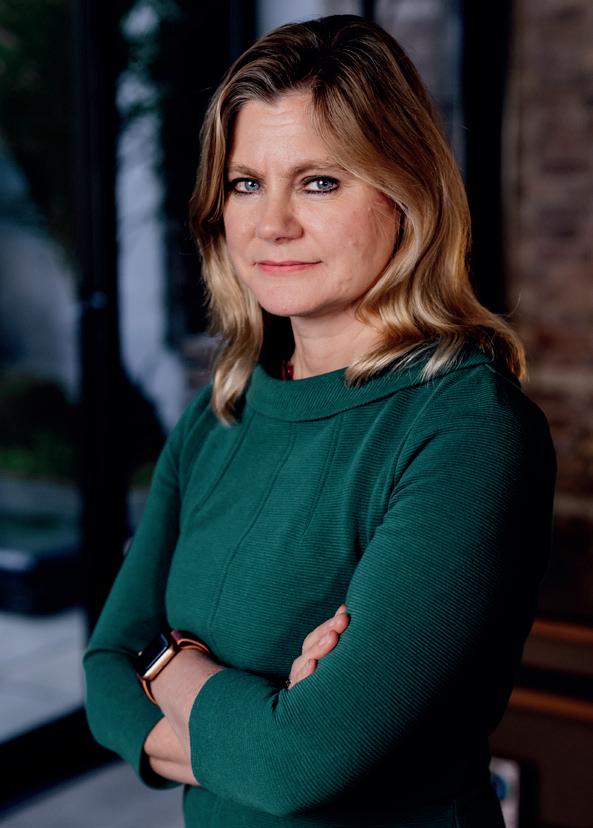
These 17 interlinked, global goals were designed to be ‘a blueprint to achieve a better and more sustainable future for all’. They marked a shift from the previously established Millennium Development Goals (MDGs), following the Millennium Summit of the United Nations in 2000. In contrast to the MDGS, the SDGs were nationally-owned, country-led and targeted wealthy, developed nations as well as developing countries.
Since then the COVID-19 pandemic has only exacerbated many of the problems relating to social inequality in the UK.
The recovery is a chance for the United Kingdom to address these issues and level up but that requires updated and specific goals in order to outline, inspire and measure progress. The most committed signatories of the Social Mobility Pledge, the Purpose Coalition, aim to improve social mobility in the UK and have responded to this challenge with the launch of the Levelling Up Goals in February 2021.
These new Goals draw on expertise provided by academia and businesses which has been applied to the unique challenges facing the UK in levelling up. They focus on key life stages and highlight the main issues that need to be resolved in order to create a level playing field for all in this country. The Levelling Up Goals are intended to guide how the urgent ambition to level up the UK can actually be achieved. The impact of the work carried out to do this can, and should, be measurable.
6 Journey
Sub-goals with quantifiable targets and measurements against which progress can be charted within the 14 Goals are being developed by the Purpose Coalition. This will create a more transparent and mensurable framework with which to monitor and subsequently address problems of social mobility and inequality.
The Levelling Up Goals are designed to look at the outcomes of CSR strategies and measures that organisations operate. Many organisations are doing outstanding work and making important contributions to society but are still measuring this via inputs – a measure that focuses on pounds, shillings and pence rather than real impact on human lives.
Crucially, these Goals are a shared framework. Justine and the wider Purpose Coalition believe that with a common understanding and objectives, there can be action that drives change on the ground. Distinct entities, including local authorities, universities, businesses, policy-makers, and public sector bodies can work together, with the shared Goals being a uniting and motivating foundation for progress. As the problems which cause social inequality in the UK are interlinked, it seems that the response to these problems must also be collaborative.
The Purpose Coalition has encouraged local authorities, businesses and others to share their own best practice with other organisations so they are not only demonstrating their own commitment, but creating a shift towards purpose-led organisations. The Goals can encourage an extension of this co-operative exchange of information which can be used to help level up Britain.
The Purpose Coalition has a cross-party group of MPs that were consulted as part of the creation of the Levelling Up Goals and who are ongoing supporters of the work that the organisation does.
This engagement includes focused roundtable policy discussions, best practice seminars and events.
7 Journey Positive destinations Post 16+ 3 Successful school years 2 Strong foundations in Early Years 1 Right advice and experiences 4 Fair career progression 6 Open recruitment 5 Good health and well-being 8 Widening access to savings & credit 7 Closing the digital divide 10 Extending enterprise 9 Building homes & sustainable communities 12 Infrastructure for opportunity 11 Achieve equality, through diversity & inclusion 14 Harness the energy transition 13
In February 2022 the former Levelling Up Secretary Michael Gove unveiled the government’s flagship Levelling Up White Paper. The document set out a plan to transform the UK by spreading opportunity and prosperity to all parts of it
At the heart of the document were 12 bold, national missions - all quantifiable and to be achieved by 2030. These missions are the government’s policy objectives for levelling up, and thus form the heart of the government’s agenda for the 2020s.
These 12 missions align closely with the 14 Levelling Up Goals and BCP Council’s priorities. As can be seen in the table from BCP Council below, there are several areas where BCP Council’s priorities, outlined in its Corporate Strategy and Big Plan, are closely aligned to, and already delivering on, the government’s Levelling Up Missions.
It is also important to note that Levelling Up Goals 13 (Harnessing the energy transition) and 14 (Achieving equality through diversity and inclusion), and the council’s sustainable environment strategic priority are overarching and could fit in across most of the Levelling Up Missions.
Objective 1: Living Standards Research & Development (R&D) Transport infrastructure
By 2030, pay, employment and productivity will have risen in every area of the UK, with each containing a globally competitive city, with the gap between the top performing and other areas closing.
By 2030, domestic public investment in Research & Development outside the Greater South East will increase by at least 40% and at least one third over the Spending Review period, with that additional government funding seeking to leverage at least twice as much private sector investment over the long term to stimulate innovation and productivity growth.
By 2030, local public transport connectivity across the country will be significantly closer to the standards of London, with improved services, simpler fares and integrated ticketing.
− Big Plan: Infrastructure
− Corporate Strategy: Dynamic Places - Create a sustainable, vibrant and inclusive economy
− Big Plan: Act at scale - Wessex Fields
Goal 5: Open recruitment
Goal 6: Fair career progression
Goal 9: Extending enterprise
Digital Connectivity
By 2030, the UK will have nationwide gigabit-capable broadband and 4G coverage, with 5G coverage for the majority of the population.
− Big Plan: Infrastructure - Transforming Travel programme, Dorset Connectivity Strategy
− Corporate Strategy: Dynamic PlaceDevelop sustainable infrastructure
Big Plan: Infrastructure - Smart Place Programme
− Corporate Strategy: Dynamic Places - Create a 21st century digital infrastructure
Goal 11: Infrastructure for opportunity
Goal 10: Closing the digital divide
Journey Focus area Government missions BCP Council Corporate Strategy and Big Plan priorities Levelling up goals
Boost productivity, pay, jobs and living standards by growing the private sector, especially in those places where they are lagging
Wellbeing
Spread opportunities and improve public services, especially in those places where they are weakest
By 2030, the number of primary school children achieving the expected standard in reading, writing and maths will have significantly increased. In England, this will mean 90% of children will achieve the expected standard, and the percentage of children meeting the expected standard in the worst performing areas will have increased by over a third.
By 2030, the number of people successfully completing highquality skills training will have significantly increased in every area of the UK. In England, this will lead to 200,000 more people successfully completing high-quality skills training annually, driven by 80,000 more people completing courses in the lowest skilled areas.
By 2030, the gap in Healthy Life Expectancy (HLE) between local areas where it is highest and lowest will have narrowed, and by 2035 HLE will rise by five years.
− Corporate Strategy: Brighter Futures - Enable access to high quality education
Goal 1: Strong foundations in early years, Goal 2: Successful school years, Goal 7: Widening access to savings & credit
− Corporate Strategy: Dynamic Places - Increase productivity through skills development
Goal 3: Positive destinations post-16
Goal 4: Right advice and experiences
− Big Plan: Communities
− Corporate Strategy: Fulfilled Lives - Promote happy, active and healthy lifestyles
Goal 8: Good health and wellbeing
By 2030, well-being will have improved in every area of the UK, with the gap between top performing and other areas closing.
− Big Plan: Communities, Culture and Children
− Corporate Strategy: Fulfilled Lives - Enable people to live well through quality social care
Goal 10: Closing the digital divide
Journey Focus area Government missions Bcp council corporate strategy priorities & big plan projects Levelling up goals
Objective 2: Education Skills Health
“By 2030, the number of primary school children achieving the expected standard in reading, writing and maths will have significantly increased.”
Objective 3:
Restore a sense of community, local pride and belonging, especially in those places where they have been lost
By 2030, pride in place, such as people’s satisfaction with their town centre and engagement in local culture and community, will have risen in every area of the UK, with the gap between top performing and other areas closing.
By 2030, renters will have a secure path to ownership with the number of first time buyers increasing in all areas; and the government’s ambition is for the number of nondecent rented homes to have fallen by 50%, with the biggest improvements in the lowest performing areas.
By 2030, homicide, serious violence and neighbourhood crime will have fallen, focused on the worst affected areas.
− Big Plan: Iconic - Town Investment Plan (Towns Fund),
− Rejuvenate Poole and Seafront
− Corporate Strategy: Connected CommunitiesStrengthen the cultural identity of our towns and places
− Big Plan: Act at scale - Holes Bay
− Corporate Strategy: Dynamic Places - Invest in the homes our communities need
Goal 12: Building homes and sustainable communities
Goal 12: Building homes and sustainable communities
− Big Plan: Communities
− Corporate Strategy: Connected Communities
- Ensure our communities feel safe
Objective 4:
Empower local leaders and communities, especially in those places lacking local agency
By 2030, every part of England that wants one will have a devolution deal with powers at or approaching the highest level of devolution and a simplified, long term funding settlement.
− Corporate Strategy: Modern, Accessible, Accountable Council
Goal 8: Good health and wellbeing
Goal 12: Building homes and sustainable communities
Focus area Government missions Bcp council corporate strategy priorities & big plan projects Levelling up goals
Pride in Place Local Leadership Housing Crime
Journey
“Restore a sense of community, local pride and belonging, especially in those places where they have been lost ”
Analysis
The area covered by Bournemouth, Christchurch and Poole Council is home to nearly 400,000 residents, three towns, three universities, a multiple site college, and 20 schools. The council’s ongoing commitment to levelling up, with aims to go even further, will continue to impact the lives of many across its communities.
Although the area boasts beautiful coastline and prosperous towns and cities, there are pockets of deprivation that sit almost side by side to them. One of the challenges that BCP Council faces is how to ensure that opportunity is spread evenly across the area and people do not get left behind.
To address this, among other challenges such as the ongoing global climate crisis, BCP Council has made a bold commitment to level up its communities.
Through the creation of its ‘0-19 Team’, its focus on SEND children, and the implementation of Corporate Strategy Commitments, BCP Council effectively addresses the first 3 Levelling Up Goals.
The team has been working with nurseries and schools, with their ‘Children and Young People’s Plan’, sixth form colleges and local universities to ensure necessary support, guidance, wellbeing and access to higher education are available to all.
However, having access to education, apprenticeships, and higher education is only the first hurdle in the process of levelling up communities and spreading opportunities.
BCP Council’s focus and commitment to its ‘Adult Community Education’ agenda is crucial to individuals gaining the right advice and experiences at whatever stage in life they need it. Just because people did not get a good education when they were younger does not mean that opportunity should be shut off to them forever.
BCP Council’s initiatives with local employers and the Jobcentre Plus is making access to work easier for many and ensuring that recruitment processes are open.
Through its Corporate Strategy Commitments, and other initiatives BCP Council is collaborating with local stakeholders to achieve wide ranging social change. An acknowledgment of the power of business and its potential as a force for good strengthens the impact the council has.
Underpinning all of BCP Council’s success in meeting the framework of the Levelling Up Goals is a commitment to build a thriving and effective community for future generations.
BCP Council’s Corporate Strategy Commitments to increase green spaces over the next year and ongoing work with community associations to ensure long term sustainability of the BCP Council area’s community centres is meeting Goal 12building sustainable homes and communities.
Imperatively, in this drive for sustainable homes and communities is the need to build towards a net zero future by harnessing the energy transition. BCP Council has not only publicly announced that it will strive to be one of the most sustainable regions in the world, but is working from the ground up to achieve this right now.
20 Analysis
“The team has been working with nurseries and schools, with their ‘Children and Young People’s Plan’”
The council is implementing a far reaching plan to meet Goal 13 and truly harnessing the energy transition. There is potential for further work in this area through the ‘Green Education’ wing of the Adult Community Education Agenda and the continued engagement with local business over the issue of green sustainable growth.
Equality and diversity must be woven through all of the aforementioned activities. The council’s continued focus on community, culture, and children is implemented in their meeting of Goal 14.
BCP Council has produced an equality-based Economic Development Strategy which they are asking local businesses to pledge to, seeking to propel a diverse new generation into welltrained, well-compensated and more senior management positions.

As well as this, BCP Council has set up an Equality Action Commission to better understand and address the challenges facing Black, Asian and Minority Ethnic (BAME) individuals and communities, constantly reviewing their processes.
BCP Council has shown that it is willing to take a leadership role in the levelling up agenda. The projects and initiatives it is running are having a measurable impact on the ground and, importantly, there is an ambition to go much further.
This ambition can be seen with its leading work on measurement and the desire to share best practice with others across the country. Using a range of metrics from both a national and local level, BCP Council has created a standard that could be used across the country.
21
Analysis
6. Measurement
Measuring the progress of levelling up is still in its infancy and solutions from the ground up are needed.
We can see from the government’s Levelling Up White Paper that measurement is a key element of the levelling up agenda but one that is not easy to get right.
BCP Council is a leading example of an organisation on the ground that is using its own expertise to measure its levelling up impact. The Council continues to refine a set of metrics that is both useful and available, having undertaken a comparison exercise of metrics including those in the Levelling Up White Paper and Levelling Up Goals framework. Insights from the Council’s work on this has fed into the development of the Purpose Coalition’s measurement of the Levelling Up Goals.
The data table shows how BCP Council compares against the national average using some of these metrics specific to the Levelling Up Goals framework.
The data for the BCP area is often higher than the national average, as presented in green. In particular, the local authority’s positive destinations post 16+ data is higher than the national average across the board. As is the case with its work against the employment and recruitment-based metrics in Goal 5.
The area also performs well across the closing the digital divide goal, as well as against certain diversity criteria.
There are certain areas where the data is slightly weaker than the national average - including living standards. There are also certain elements of diversity, namely disability, where the BCP data is lower than the national average. This might suggest that more work is needed in these areas or more support is needed from national government.
It must be noted that against certain Goals or areas the data available is still limited. For Goal 6, for example, there is very little data around fair career progression. Measurement from within organisations would be needed to identify which groups of people were progressing within the workforce. As this doesn’t currently exist on a wide scale, there are no measurements listed against Goal 6.
Likewise for Goal 14, there is some limited overall data and indicators that can paint a picture of the national position but it is striking how little data there is on gender, ethnicity and socio-economic background to help understand where the barriers are to talent flowing freely around the system.
These gaps represent significant and crucial gaps in the ongoing understanding of success in driving levelling up.
Percentage of children attending Early Years setting rated Good or Outstanding by Ofsted (GOV.uk 2020)
Percentage of all children achieving a ‘good level of development’ at the end of the Early Years Foundation stage (GOV.uk 2019)
22 Measurement
Mission / Focus Area Metric Levelling Up Goal National average BCP
Proportion of children living in workless households (ONS 2020) 5 - Education 5 - Education 1 - Living standards 98% 71.8% 9.9% 97.5% Strong foundations in Early Years 1 73.8% 4%
Percentage of Pupils achieving the expected standard in reading, writing and maths by the end of Key Stage 2 (Age 10) (GOV.uk 2022)
Percentage of primary schools rated ‘outstanding’ or ‘good’ by Ofsted (2022)
Percentage of secondary schools rated ‘outstanding’ or ‘good’ by Ofsted (2021)
Secondary school permanent exclusion rate (GOV.uk 2019-2022)
Secondary school suspension rate (GOV.uk 20192022)
Attainment of Level 2 (5 GCSEs 9-4 or equivalent by age 19) (GOV.uk 2020-2021)
Percentage of 16-18 year olds who are not in education, employment or training (Labour Force Survey 2021)
Percentage of 16-18 year olds who are not in education, employment or training (Labour Force Survey 2021)
Proportion of students progressing on to higher education (GOV.uk 2019)
Proportion of employed people in ‘skilled employment’ (ONS metric SOC 1-3, 5 2022)
Proportion of 16-17 year olds currently involved in apprenticeship schemes (GOV.uk 2019-2020)
Average number of the 8 Gatsby Benchmarks of good career guidance achieved by schools per region (Careers & Enterprise 2018)
23 Measurement
Levelling Up Goal
5 - Education 5 - Education 5 - Education 5 - Education 5 - Education 5 - Education 5 - Education 59% 88% 0.06% 76% 3.8% 82.9% 6.6% 60% Successful school years 2 91.5% 0.05% 93.1% 1.6% 83.3% 5.5% Mission / Focus Area Metric National average BCP
5 - Education 6 - Skills 6 - Skills 6 - Skills 6 - Skills 6.6% 3.05% 47% 59.5% 3.8% 5.5% 3.2% 40% 61% 4.6% Positive destinations Post 16+ 3 Right advice and experiences 4
Unemployment rate 16-64 year olds: National average (ONS 2021-2022)
Employment rate 16-64 year olds: National average (Labour Market Statistics 2021-2022)
Labour demand (job density) (ONS, Labour Market Statistics 2020)
Percentage of workless households (Labour Market Statistics)
Gross Value Added (GVA) per filled job (ONS 2020)
Gross median weekly pay (ONS 2020)
Gross disposable household income per head of the population (ONS 2021)
Proportion of jobs that are ‘low paid’ (at or below £9.12 an hour) (ONS, The Health Foundation 2020)
Life expectancy at birth (Males) in years (ONS 2021)
Life expectancy at birth (Females) in years (ONS 2021)
Overweight or obese prevalence for adults (Commons Library, Public Health UK 2019)
Average ratings of personal wellbeing (life satisfaction, worthwhile, happy, anxious) (ONS 2021)
Smoking prevalence (16 and over) (ONS 2020)
Proportion of those who are economically inactive due to long-term illness (ONS, Labour Market Statistics 2021-2022)
24 Measurement
7 - Health 7 - Health 7 - Health 8 - Wellbeing 7 - Health 7 - Health 79 82.9 64.3% 14.5% 24.9% Life Satisfaction 7.66, Worthwhile 7.86, Happy 8.77, Anxiety 3.05 80.5 83.7 60% 13.4% 25.2% Life Satisfaction 7.5, Worthwhile 7.7, Happiness 7.3, Anxiety 3.2 Good health and well-being 8 Mission / Focus Area Metric Levelling Up Goal National average BCP
6 - Skills 1 - Living standards 6 - Skills 6 - Skills 3.6% 75.2% 0.84 jobs per person 0.89 jobs per person 13.8% 3.5% 76.9% 12.5% Open recruitment 5
1 - Living standards 1 - Living standards 1 - Living standards 1 - Living standards £58,054 £613.10 £21,433 14.2% £51,203 £559 £21,652 15% Successful school years 2 Widening access to savings & credit 7
Businesses per head (BEIS, BCP Council 2021)
Number of SMEs per head of the population (Labour Market Statistics 2022)
Proportion of employee jobs by industry (Labour Market Statistics 2021) (Manufacturing)
(Construction)
(Wholesale And Retail Trade; Repair Of Motor Vehicles)
(Transportation and storage) (Accommodation and food service activities)
and communication)
and insurance activities)
estate activities)
And Support Service Activities)
Health And Social Work Activities)
Percentage of 4G (and 5G) coverage by at least one mobile network operator (OFCOM 2021)
Percentage of households with Gigabit capable broadband (ONS 2021)
Average excess waiting time for frequent services (Bus) (DfT, Local Government Inform 2020-2021)
Percentage of non-frequent bus services running on time (GOV.uk 2020-2021)
25 Measurement
(Information
(Financial
(Real
(Professional,
(Administrative
(Public
(Education)
(Arts,
Research
Development
Research
Development
Research & Development (R&D) 5,590,900 per 66.8 million (8.36%) 1 per 92 7.6% 4.9% 14.4% 5.1% 7.5% 4.5% 3.5% 1.8% 8.9% 8.9% 4.6% 8.8% 13.7% 2.3% 4.9% 15.4% 4.6% 9.9% 3.2% 7.3% 1.5% 8.1% 7.1% 4.5% 9.1% 15% 2% 15,250 per 193,600 (7.8%) 1 per 89 8.6% Extending enterprise 9 Mission / Focus Area Metric Levelling Up Goal National average BCP
Scientific and Technical Activities)
Administration And Defence)
(Human
Entertainment And Recreation) 2 -
&
(R&D) 2 -
&
(R&D) 2 -
4 - Digital Connectivity 4 - Digital Connectivity 92% 21.4% 100% 28.6% Closing the digital divide 10
3 - Transport infrastructure 3 - Transport infrastructure 1.8 minutes 87.9% 1.2 minutes 92% Infrastructure for opportunity 11
Number of non-decent public-owned homes (Local Government Inform 2020-2021)
Annual estimates for police recorded crime by county per head (ONS 2022)
Homelessness acceptances per 1,000 households (Split by town or city) (Local Authority Homelessness Statistics 2017-2018)
Proportion of residents who feel ‘satisfied with their local community’ (GOV.uk, BCP Council 2020-2021)
Employment in low carbon and renewable energy economy settings (ONS - average across regions 2020)
Greenhouse gas emissions (BEIS 2020) Net
Gender Pay Gap (median hourly pay) (ONS 2021)
Disability Employment Rate Gap (ONS, GOV.uk 2020-2021)
Proportion of 16-17 year olds with Special Educational Needs who are recorded as participating in education or training (GOV.uk 2021-2022)
Average attainment 8 score (out of 90.0) by group (White) (GOV.uk 2021-2022) (Mixed-race)
26 Measurement
(Black) (Chinese) (Asian) 6 - Skills 6 - Skills 5 - Education 5 - Education 28.4% 87.7% 50.2% 51.3% 50% 69.2% 55.8% 35% 83.9% 53.8% 56% 54.8% 73.4% 64.3% Achieve equality, through diversity & inclusion 14 15.4% higher for men 15% higher for men Mission / Focus Area Metric Levelling Up Goal National average BCP
Zero Target (BCP 2019) 10 - Housing 11 - Crime 10 - Housing 11 - Crime 6 - Skills N/A N/A 210 19,113 414.1 million tonnes 79% 2.4 2045 5,335,806 by 67,000,000 (7.96%) 50,890 by 426,516 (11.9%) 135 29,300 (South West) 2.1 million tonnes 84% 2.4 2030 Building homes & sustainable communities 12 Harness the energy transition 13
Recommendations
The following recommendations have been suggested after analysing the information in sections 4 and 6.
Areas have been identified where BCP Council can go further on their own, as well as where extra support is needed from central government.
1. Sustainable environment
One of BCP Council’s priorities is to lead its communities towards a cleaner, sustainable future that preserves an outstanding environment for generations to come.

BCP should ensure that education around sustainability is embedded into all levels of children and adult education. This can be through weaving sustainability knowledge and practices into current courses and programmes. Businesses in the region should continue to be pushed on their commitment to reach net zero before 2050 and BCP Council should ensure that the right information and advice is available for them.
As well as educating both businesses and the general public, the green economy is an area where BCP Council could focus its efforts. Sustainability is a key sector for the region and Bournemouth University was ranked number one in the UK for climate action (THE Impact Rankings 2022). Due to its coastal location, BCP Council has the perfect opportunity to create a talent pipeline for those going on to work in the green economy.
2. Dynamic Places
Only through collaboration at a local level can progress truly be made on levelling up. BCP Council could work closely with others on a place-based approach to levelling up within Bournemouth, Christchurch and Poole. The Purpose Coalition also works with Bournemouth University which is also measuring its impact using the Levelling Up Goals. The relationship between BCP Council and Bournemouth University is crucial and should be at the forefront of the area’s levelling up efforts.
All partnerships with local stakeholders should ensure that the BCP area has a strong narrative and highlights its strengths to a national and international audience.
27 Recommendations
BCP Council has shown that it is committed to the levelling up agenda and doing everything it can to spread opportunities to the people of Bournemouth, Christchurch and Poole.
“BCP should ensure that education around sustainability is embedded into all levels of children and adult education”
3. Connected Communities
Reaching those furthest away from opportunity and ensuring that everyone within communities feels safe, engaged and included is absolutely crucial. The Community Equalities Champions Network at BCP Council meets on a regular basis to ensure that services are fit for purpose for all within the communities they serve. BCP Council should continue to use data to identify any emerging trends and disadvantaged groups that need further support.
For example, data in this report shows that the BCP area has a higher disability unemployment rate than the national average. Could further support be given to those with a disability to ensure they are aware of the opportunities available to them. Work with local employers to identify particular roles could also be mutually beneficial.
Over 7 million people (17.5%) of working age are disabled or have a health condition in the UK. BCP Council could work closely with the local voluntary sector to ensure relevant opportunities are given to those with disabilities.
The council could work with local charities and use best practice to find and help those with learning disabilities find a job. One way that this could be achieved is through ‘job-carving’. Instead of asking an individual to perform a set job description, it can be much more effective to identify different tasks that a person with a learning disability can do, and ‘carve’ out a new job from these different tasks.
Education achievements and career opportunities also tend to be lower among gypsy, roma traveller (GRT) communities. A specific outreach programme to promote attainment and spread opportunity within these communities could also have a lot of impact.
4. Brighter Futures
Providing clear routes into education or training is key to ensuring young people have the opportunity to fulfill their potential. Apprenticeships are a key way in spreading opportunities to those that need them most.
BCP Council is currently developing an apprenticeship strategy for the council. It could look into setting up an apprenticeship levy transfer scheme which allows businesses to transfer unspent levy within the area, instead of it being returned to the Treasury.
Essex County Council and West Midlands Combined Authority have both set up similar schemes to good effect.
While developing its apprenticeship strategy, BCP should ensure that it closely monitors the uptake of new apprenticeships. This key to measuring whether these opportunities are genuinely accessible to those from more disadvantaged backgrounds. Due to rising university fees, many new apprenticeships are being taken by those who would previously have gone to Uni – which closes off, rather than opens up, opportunity for all.
5. Fulfilled Lives
A key part of the levelling up agenda is ensuring that people are able to lead active, healthy and independent lives. Despite continued efforts from local and national governments, health inequalities still persist within society. BCP Council is working closely with partners on the Integrated Care Partnership Strategy and more joined up thinking around healthcare.
One of the biggest threats to healthy lives in 2022 is the cost of living crisis. The cost of living crisis will continue to put pressure on low income households. The Purpose Coalition is bringing together like minded organisations to share good practice and learning around what practical measures could make a difference. BCP Council could actively participate in this growing network, as well as ensuring they have appropriate income maximisation and debt minimisation services easily accessible at a local level to those who need them.
28 Recommendations
“ensuring that people are able to lead active, healthy and independent lives.”
Appendix
Mapping BCP Council’s activities against the Levelling Up Goals
This section of the report will map several of BCP Council’s specific initiatives against the Levelling Up Goals, to track where progress is being made and where efforts could be redirected or better targeted.
This independent impact report takes a look at the work of BCP Council set against the 14 Levelling Up Goals. It assesses where and how it is meeting those Goals and highlights the areas where it can go further to spread opportunity to those that need it most.
1.2 Childcare
When a low income or unemployed parent or carer is studying with the council, Skills and Learning Adult Community Education steps in.
The joint adult education service for BCP Council and Dorset Council financially supports the costs of childcare.
This allows the child to experience good quality early years provision and enables the parent or carer time and space to improve their skills.
1.3 Early years providers
Seventeen infant and primary schools within the BCP area signed up to deliver the Nuffield Early Language Intervention (NELI) programme during 2021-2022.
This is on top of the 31 schools that registered in 2020-2021 for the programme for reception children which has been found to improve their language and early literacy skills.
1.1 Children and Young People’s Plan
The period from pregnancy to age two is a critically important time of rapid development that lays foundations for later health, wellbeing and happiness.
In the Children and Young People’s Plan, BCP Council places specific emphasis on inclusive universal provision for children of all ages and strives to target effective support for vulnerable families, carers and individuals.
Its four priorities are that:
Children and young people have the opportunities and are supported to achieve their full potential in education, learning and future employment.
Children and young people can enjoy healthy lifestyles and make positive choices.
Children and young people are accepted as valued members of society enabling them to achieve within, and contribute to, the wider community.
Children and young people are supported to be resilient in the face of the challenges presented by the Covid-19 pandemic.
All of the early years providers have regular monitoring and support as well as training from an established team of early years education and childcare experts.
Currently 97 per cent of early years providers have a ‘Good’ or ‘Outstanding’ Ofsted inspection outcome.
1.4 SEND
There is a statutory duty on BCP Council’s health team to notify the education team if they have concerns around the development of any children.
This notification then enables education partners to ensure that those with early identified special education needs and disability (SEND) access appropriate education.
Funding from the government, called ‘SEND Support’, can enable the council to provide additional support to these children.
Local authorities are charged in law to ensure sufficient early education and childcare places for all children, including those with SEND.
29 Appendix
Strong foundations in Early Years 1
The details outlined in this section were correct when the information was supplied (May 2022).
1.5 Let’s Make Communication Count
The Let’s Make Communication Count project, run by the BCP Council’s early years and childcare advisory teams and supported by Public Health Dorset, started in 2021.
The project to support children with their communication, language and literacy development which is due to run until 2024, will enable:
Every early years provider, including childminders, to have access to, and effectively use WellComm Early Years. They will use this speech and language toolkit to screen every child in order to raise the levels of communication development.
Every early years provider to fully commit to opportunities for continual professional development in order to widen their knowledge and skills around supporting children’s communication, language and literacy. For example, undertaking training with speech and language specialists Elklan and becoming one of their Communication Friendly Settings, as well as participating in relevant networks.
Trained practitioners to work in partnership with parents and other professionals, focusing on improving children’s communication, language and literacy, providing early intervention and referring for further support from relevant services.
Trained practitioners to lead on promoting children’s communication, language and literacy in their setting and sharing their knowledge and skills to advise and support other providers, including auditing others to achieve the Communication Friendly Settings accreditation.
1.6 Healthy Movers
The Healthy Movers programme, run by Youth Sport Trust and funded by Public Health England, is designed to support the physical literacy, self-esteem and wellbeing of two to five-year-olds.
Practitioners in early years settings and families are given resources and training which they can continue at work and home.
From Autumn 2021, 12 providers began piloting the programme. Various activities are being monitored to ensure that there is an increase in physical development.
1.7 Dingley’s Promise
The Dingley’s Promise Early Years Inclusion Programme supported by Comic Relief is a series of ten courses over five years.
It is aimed at empowering early years practitioners to deliver inclusive practices by upskilling them through training, and sharing information and learning resources.
BCP Council’s early years team and special education needs coordinator began running it in January 2022.
An agreement was signed by the then director of children’s services to work in partnership throughout the length of the aims of the five-year project.
The plan is to increase the number of young children with SEND accessing early years and childcare places.
And to create a new norm where all new staff routinely take part in training as part of their induction or continuing professional development.
1.8 Building on Success
The Department for Education’s project Building on Success spanned four months from January to May 2022.
It is aimed at improving practitioners’ understanding and skills in supporting the development of the most disadvantaged children between the ages of two and four.
The project is based on the demographics of each setting and is open to those with high levels of children who live in areas of deprivation or who have special education needs.
As part of the project, early years practitioners engage in an online learning programme which upskills the learning and development areas in the early years foundation stage statutory framework.
30 Appendix
2.1 Corporate strategy commitments
In its corporate strategy, the council has made commitments to:
Create additional special school place capacity, aligned with expanding the SEND capacity of mainstream schools, by September 2023.
Achieve 100 per cent sign up of all providers in the region to an inclusive education standard by September 2023.
Reduce attainment gaps for disadvantaged children, especially where exacerbated by Covid-19, measured annually against the 2021 baseline.
Complete the pilot of a ‘whole school approach’ to mental health and wellbeing and determine the way forward.
2.2 Children’s services
The adult education service works with all schools, settings, employers and providers - and the council has now organised all education and skills teams into the same directorate - within Children’s Services.
This is a crucial positive further step to a commitment to:
Address the transition points in education in the BCP area which most disadvantage younger learners who can experience five to six changes of organisation from when they start early years until they enter KS5.
Work across age and stage in learning and skills so that there is a genuine lifelong learning and training commitment and opportunity for all people in the area regardless of background.
2.3 Careers hub
BCP Council is the home of the Dorset Careers Hub which is funded by the Dorset Local Enterprise Partnership and the Careers and Enterprise Company.
The Careers and Enterprise Company has ensured the delivery of impartial advice and guidance to all pupils and students in KS4 and KS5.
It also targets the most vulnerable - pupil premium pupils, children in need and those in care or with an education and healthcare plan.
2.4 Covid-19 recovery
Public Health Dorset, BCP Council’s 0-19 Team and all educational and skills settings have worked together on Covid-19 prevention, outbreak management and recovering together as a system.
This has meant that no schools in the area have been closed on site during any lockdown.
All educational settings worked together to continue the curriculum online, engage employers in coaching and careers events, and education.
2.5 Careers and apprenticeship shows
BCP Council partnered to hold two Careers and Apprenticeship Shows in May 2021 and March 2022.
The first was an online collaboration between employers, higher education institutions and four local authorities as it was unsafe to meet in person.
This gave 20,000 pupils and 8,000 parents opportunities to attend a major careers fair at the height of the Delta outbreak.
Children and young people in the BCP area were the largest beneficiaries and it was an important part of the transition to post 16 education, employment and training in the south west and beyond.
The show in March 2022 was in-person - 75 employers took part, 3,800 pupils attended in person during the day and more than 1,000 parents, carers and pupils came to the evening session.
31
2
Successful school years
Appendix
2.6
STEM Science, technology, engineering and mathematics (STEM) events addressed stereotyping of guidance in schools.
The 0-19 Team ran a very successful mathematics conference in September 2021 at Bournemouth University.
This saw pupils from eight secondary schools working with BAE Systems and many other STEM employers and academics on projects at a higher education institution site.
The team also ran a year nine girls STEM day at AECC University College in Bournemouth in February where sport and medical science were the lead subjects.
2.7 Economic development
BCP Council currently funds Young Enterprise employability and financial education charity to provide various employability and entrepreneurial activities across schools in the area.
It also helps businesses to engage with schools on new qualifications such as T Levels and promotion of apprenticeships.
2.8 SEND
All schools can access SEND outreach support for students where their current schools are struggling to meet their needs.
Extracurricular activities
SEND students are underrepresented in extracurricular activities that are led by schools. Very often they require additional support to attend or transport opportunities.
The Short Breaks review led by Sarah Langdale, BCP Council’s head of children’s commissioning, may address this for eligible young people.
SEND support and education and healthcare plans
All schools receive funding from central government in order to meet the needs of young people who have SEND, called ‘SEND Support’.
For a small but growing percentage of students with more complex needs an education and healthcare plan may be needed to provide additional funding for the school.
BCP Council’s SEND Team have been working with schools across the BCP area to revise and adjust the level of financial support they can receive through the ‘SEND Mainstream School Banding Review’.
BCP Mainstream Plus pilot
The BCP Mainstream Plus pilot, being delivered at two schools, allows mainstream schools to identify SEND students who may be at risk of exclusion or school refusal.
The schools receive additional funding which enables them to create bespoke provision to meet needs and keep SEND pupils in mainstream education.
Partnership approach
The early years special education needs coordinator team offers a partnership approach to the teaching staff in reception classes during autumn and spring terms. This is to support young children with an identified SEND who are transitioning into school.
2.9 Summer programmes
Over the summer of 2020 the ‘Summer Offer’ was developed, and access was created through the Family Information directory.
Forty families from the most vulnerable groups benefitted from the offer and gave positive feedback.
2.10 Adult community education
Skills and Learning Adult Community Education offers parents and carers who are unable to spend much time away from the home, online learning options.
The six to nine-month courses and allocated tutors help participants with the development of English, maths and digital skills, and lead to nationally recognised qualifications.
There are entry points throughout the year for in-person and distance learning.
32 Appendix
The service also offers a range of level one to level three vocational, flexible online learning options that can be studied at any time.
Family learning courses are delivered in partnership with schools and early years settings and are available across the BCP area.
All have an embedded literacy or numeracy intent, encourage intergenerational activity and are open to the families with the greatest skills gaps.
The team is championing work experience across the council, and giving support and sign off for the BCP Supported Internship Programme which started in September 2022.
3.3 0-19 Team
The council’s 0-19 Team has been working with local higher education providers and the Southern Universities Network to help children from disadvantaged families access higher education.
3.1 Corporate strategy commitments
The council has made commitments to:
Reduce local levels of those (16-24) not in education, employment or training (NEETs) towards the current national average of 11.5 per cent by March 2023.
Help young people to prepare for adulthood by improving the ‘developing independence skills’ learning offer and by strengthening the working relationships between adult and children services by March 2023.

Support young people in their readiness to access apprenticeships and future employment in addition to increasing the apprenticeships offer by March 2023.
3.2 Human resources
The human resources team is developing an apprenticeship strategy and plan which will create a variety of entry routes into BCP Council.
It is supporting career events to promote careers and apprenticeships to young people and school leavers.
It has commissioned the DFN Project Searchan international transition to work programme committed to transforming the lives of post-19 young people with learning disabilities and autism.
This will be rolled out across BCP Council from September 2022. The programme is being funded by the government’s SEND Preparation for Employment grant.
The team has also been developing the T Level Network – a collaborative group of stakeholders that will be pivotal to the successful roll out of T Levels across the BCP area from 2023.
It is offering SEND meaningful work experience opportunities led by the council’s SEND enterprise adviser.
Best practice is being shared through Careers Leaders, the post-16 Network and the Enterprise Adviser network.
Finally, the team is offering post-16 settings the opportunity to buy access to skills and learning platforms and to access The Skills Network online learning provider.
33
Positive destinations Post 16+
Appendix
3
3.4 PfA Development Plan
The Preparing for Adulthood (PfA) Pathway 2019-2022 sets out the council’s commitment to developing pathways for young people with SEND to prepare for and move into life as an adult.
The PfA operational board and strategic board are leading on the delivery of the development plan which aims to offer those young people a brighter future, fulfilled lives and a connection to their communities.
The SEND Team has worked with local providers to develop new initiatives to deliver PfA based curriculums that focus on the skills for daily life.
They deliver need led provision to enable young people with SEND to develop skills which will enable them to become as independent as possible in adulthood.
Key actions that the council plans to deliver include:
Young people will engage in learning, training and employment opportunities that are linked to their individual aspirations.
Young people will develop the skills to live as independently as possible.
Young people will enjoy the best possible health and wellbeing.
Young people will have friends, relationships and be part of their community.
3.5 Adult community education
Skills and Learning Adult Community Education is delivering:
Funding for the South West Regional Assessment Centre to deliver supported internship pathways for 16 to 24-year-olds with learning difficulties and disabilitiesand education and healthcare plans.
These are designed to build confidence, provide valuable life and independent living skills, and wellsupported work experience placements.
There may be progression to volunteering, supported job roles and further learning. The courses are deliveredfrom learning centres in Boscombe, Bournemouth and Merley House, Poole.
Sector-based work academy programmes (SWAPS) to support people into employment facilitated by Jobcentre Plus and local employers.
English language skills for Afghan refugees, Ukrainian refugees, foreign workers and other non-English speakers.
Apprenticeships in business administration, customer service, team leading, teaching assisting and early years education.
Financial support to those with low household incomes to remove the barriers to learning, funding childcare, resources, equipment, IT connectivity, travel and parking costs.
An accessible website with translation tools available.
Everyday Skills courses for adults with learning disabilities and difficulties and young people with education and healthcare plans to help gain more confidence, knowledge and independence for everyday life.
Courses include computing, social communication, cooking, money management, reading and writing, English, maths, digital and leisure, and wellbeing courses.
Sub-contracted employability and personal development courses delivered by specialist providers that target the hardest to reach and those further away from sustained employment.
3.6 Economic development
BCP Council helps businesses engage with colleges and universities to encourage employment within the area’s priority sectors.
In its Economic Development Strategy (EDS), the council has a pledge that it is asking businesses to sign up to.
34 Appendix
Part of it states: A commitment to in-work training and active support for pathways to employment initiatives and Increasing levels of diversity in the BCP workforce and supporting an inclusive approach to employment for all.

3.7 Target groups
The council analyses university attendance by postcode to identify who its target groups are.
With its colleagues in the Southern Universities Network it targets schools with cohorts that have never had a family member attend university or post level three education.
As well as work in schools and with Careers Leaders,the council also reaches out to the community the pupils are from.
The council runs family friendly events with the 0-19 Team coaching bus where parents can ask questions in a relaxed environment away from school.
Three hundred people attended a recent event at Rossmore community centre which resulted in an increase in higher education institute applications in the Bourne Valley.
3.8 Enterprise adviser
BCP Council has a team of three careers co-ordinators co-funded by the Dorset Local Enterprise Partnership.
They have linked an employer as an enterprise adviser to every secondary school and every SEND school or setting with post 11 provision.
This has improved schools’ and settings’ performance against the Gatsby ‘Good Career Guidance’ benchmarks and ensured that they all have a careers and enterprise strategy.
This work has created a strong bond between school age young people and local employers.
3.9 People strategy
As part of BCP Council’s people strategy it has the following goals:
‘Be progressive in creating employment opportunities for a wider demographic from our community’ - under its ‘Inspiring people, celebrating diversity’ theme.
‘Increase our focus on early careers, increasing our numbers as a leading provider of early careers within the area’ - under its ‘High performing teams, resourced for the future’ theme.
‘Look to create social mobility opportunities for care leavers, ex-offenders and those with disabilities’ - under its ‘Celebrating success, giving something back’ theme.
The council does not currently have a separate apprenticeship strategy but it is analysing how it handles work experience, interns, T Level placements, traineeships and apprenticeships.
It will then build the case for why it needs to develop more opportunities across BCP Council for all, linked to these early career and onward development opportunities.
This will enable the council to have a more programmed approach to the delivery of these moving forward and widen the scope of opportunities.
35
Appendix
3.10 Talent acquisition strategy
BCP Council is designing a talent acquisition strategy that will incorporate different entry routes into the council.
Council teams will model the behaviours and ways of working that will benefit all.
Work experience for SEND young people is built into events. It is delivered on the day and reviewed and evaluated afterwards.
This is part of a ‘if I can see it, I can be it’ approach. For example, if a young person with SEND is designing radio adverts for an event, managing crowds on the day and delivering evaluations, they will be offered work experience.
3.11 SEND internships
BCP Council will have its first supported SEND internships in place for post-19 young people at the BCP Council Civic Centre, Bournemouth from September 2022.
This will enable young people with SEND to undertake a rotation of work opportunities within BCP Council.
3.12 Sub-contracted funding
Funding has been subcontracted to:
AIM Arts Academy which supports young people from across the area who have disengaged from education or have been homeschooled and lack the personal skills and resilience required for further study or work.
They support learners’ progression into further study or work and re-engage them with society through creative and technical skills development, qualifications and an individualised personal development plan to address creative skills shortages.

The programme includes functional skills qualifications or GCSE English and maths where appropriate.
The South West Regional Assessment Centre in Broadstone delivers supported internship pathways for 16 to 24-year-olds with SEND.
This is in order to build their confidence, provide valuable life and independent living skills and supported work experience placements.
The idea is that they will progress to volunteering, supported job roles and further learning.
Learning centres in Boscombe, Bournemouth, Merley House, Poole, and Dorchester deliver the training.
Right advice and experiences 4
Access to the right advice and experiences at the right time to unlock opportunity throughout a person’s life.
Getting great access to career advice and the chance for those wider experiences that broaden horizons and set schoolwork in context are vital. It really makes the difference between a young person being able to know about opportunity and then understand the steps towards it and not.
Through its adult community education, BCP Council ensures that local people have access to the right advice and experiences across a wide range of sectors and job roles.
36
4.1 Corporate strategy commitments
One of the council’s commitments is to create a skills strategy by December 2022 which tackles inequality and supports local businesses in partnership with educational establishments and the market.
4.2 Human resources
The human resources team is developing a talent enablement and acquisition strategy to offer work experience, T level placements, internships linked to career pathways and apprenticeships.
4.3 Adult community education Skills and
Learning Adult Community Education delivers:
Work in partnership with Jobcentre Plus to help unemployed people and those with confidence and mental health issues such as anxiety or depression.
It will refer them onto relevant employability pathways, back to work skills and confidence programmes designed to retrain or return them to the job market.
About 30 per cent of learners have learning difficulties and disabilities and 55 per cent are unemployed.
Pathways, a structured career transition course for over 40s that focuses on understanding and overcoming barriers, and provides transferable employability skills.
It helps participants to understand the local job market and complete the relevant level two distance qualification to boost the impact of their CV.
An employment and progression officer that provides on-demand pre-recorded tutorials on CV writing, cover letters with the option of attending a monthly drop-in.
IT courses including essential digital skills qualifications, the International Computer Driving License (ICDL), cyber security and coding for those lacking digital skills.
Careers information advice and guidance to support people into the best fit training and career paths for their skills and lifestyles.
High pass rates in English, maths, GCSEs and functional skills - progressing people into further education and higher education.
Targeted work to underrepresented groups to get them to engage in learning opportunities.
This takes place through community outreach work, voluntary and community sector partnerships, schools, children’s centres, housing associations, drugs and alcohol services, Jobcentre Plus, mental health services, employers and council service units.
Outstanding feedback from learners and stakeholders on the sector-based work academy programmes (SWAPs).
Run in partnership with Dorset NHS, seven out of 11 were offered employment for administration roles in GP surgeries.
In the hospital healthcare worker SWAP all 12 engaged were offered jobs.
New SWAPs in early years and teaching assistant and business administration are being developed for schools and nursery employers.
A new HGV driver pre-employment training package which has been agreed with JCP to better prepare drivers for roles in the logistics and transportation sector.
4.4 Economic development
Through its significant engagement with businesses, BCP Council encourages them to engage with the skills institutions to offer work experience, in work training and apprenticeships. It also works closely with DWP and local training providers to help people back into work.
4.5 Spear Programme
BCP Council runs day nurseries, Little Explorers and Flippers, which offer high quality early years and childcare apprenticeships to all those interested in this route.
37
Appendix
The BCP Workforce Development’s early years team takes part in the annual careers fair for school leavers.
4.6 Hospitality and leisure
The council funded a project delivered by a local service provider to address the chronic shortage of resource in the hospitality and leisure sector.
This involved DWP advising customers to attendthis training to improve their confidence to work and the training was all about achieving a qualification in catering.
The training was well attended and people obtained jobs in the industry.
The council is also working with DWP to do a large recruitment fair focused on the employers that are struggling with recruitment.
5.2 Corporate strategy commitments
As part of BCP Council’s corporate strategy it is targeting care leavers, disadvantaged boys, and young people with the greatest barriers to learning and work to join apprenticeship schemes to maximise their opportunities.
From September the council is modelling an inhouse supported internship route from SEND young people.
Several local employers support a Classroom in the Heart of Industry (CHI) employment and education training programme for 16 to 19-yearolds. This is based around Linwood School, a day school for SEND children. Marsham Court and Tescos are among the providers.
The council is working with the Autism Wessex charity and JP Morgan financial services company on autistic young workers and their successful induction to work.
It also plans to deliver a lifelong learning strategy by March 2023, working with partners to promote a broad learning offer for work and well-being, culture and arts and to increase awareness of environmental issues and sustainable living.
5.3 Human resources
5.1 Open recruitment
Careers and professions open to people of all backgrounds through transparent, accessible and open recruitment practices.
Open opportunities and open recruitment are needed so that the nation’s talent can make the most of its potential. Ensuring that all careers are open to the widest possible range of young people really matters.
The work BCP Council does around Goals 1,2,3 and 4 would be wasted if employment opportunities were not open. Its strategy to target those with the greatest barriers for apprenticeship schemes will ensure that more people are able to fulfill their potential.
The human resources team is developing a talent acquisition plan which looks at different recruitment pathways into BCP Council including wider representation from the community.
5.4 Adult community education
Skills and Learning Adult Community Education is working with local employers and Jobcentre Plus to bridge the journey into work.
It is doing this through the provision of SWAPs, pathways employability programmes, CV preparation tutorials and drop ins, and the provision of careers education, information, advice and guidance for those with barriers to work.
Apprenticeship employers are chosen carefully for their ability to support young people or those with additional needs.
38 Appendix
Open recruitment 5
The service along with children’s services is developing a bespoke not in education, employment or training (NEET) programme for care leavers and vulnerable young people.
In partnership with the Virtual School and College for BCP Council, the team is also co-delivering the ‘Discover You’ NEET programme at Upton House in Poole.
5.5 Spear Programme
BCP Council runs Resurgo’s six-week free employability Spear Programme for 16 to 24-year-olds.
Attendees are given training in the skills needed to get a job, such as interview practice, CV writing, how to speak professionally and how to present themselves well.
Fair career progression 6
6.1 Human resources
The council’s human resources department is developing a talent enablement strategy focusing on skills development, transparent career pathways linked to apprenticeships at all levels.
As part of the strategy it is embedding a coaching and mentoring culture. This will form part of the employee value proposition for the council to attract and retain talent.
It is also offering leadership and management training to upskill new or potential managers, along with leadership apprenticeships.
6.2
Adult community education
Skills and Learning Adult Community Education delivers a range of management, team leader and mentoring qualifications to support progression in the workplace and improve the productivity of organisations.
6.3 Economic development
Within the economic development strategy, the council is asking businesses to commit to in work training and provide active support for pathways to employment initiatives. This includes participating with local schools and increasing the use of apprenticeships to kick start careers.
The economic development team shares information in schools, and runs continuing professional development on how to deliver work experience. They also provide information on T Levels, and placements and networking opportunities between schools and business.
6.4 DorMen
BCP Council sponsors Dorset Mentoring (DorMen) which is a mentoring service for SMEs across the BCP area.
DorMen employs about 130 volunteer business mentors that have time to offer to businesses that require mentoring.
The businesses that use this service pay a small admin fee and are then matched to an appropriate mentor. Any business can apply to request a mentor.
Widening access to savings & credit
7.1 General advice service
Citizens Advice Bournemouth, Christchurch and Poole provides a free general advice service to support resident’s with guidance on debt and money matters.
It offers this information and advice through face-to-face, phone and email services, and online via adviceguide.org.uk
39
Appendix
7
8.1 Corporate strategy commitments
BCP Council plans to complete an Active Lives statement to guide a future leisure centre management model, built facilities strategy and access to leisure and learning policy.
It plans to increase the proportion of people with dependency successfully accessing alcohol and drug treatment services by March 2023.
The council is working with partners and communities to address food insecurity by March 2023.
It is working with partners to help the area become registered as an age friendly community with the World Health Organisation by 2024.
It is committed to modernising day opportunities so that all residents with care and support needs have opportunities to engage in daytime activity in both day centre and community settings, some of which will offer an important break for carers.
The council is developing outreach support with GPs in community-based settings to engage earlier with patients. This will also improve the quality of life for those residents at risk of worsening health and outcomes.
It plans to deliver the agreed Homelessness and Rough Sleeping Strategy 2021-2025 through the established multi-agency BCP Homelessness Partnership.
8.2 Human resources
The council’s human resources team has partnered with Public Health England, NHS, and other local councils on the integrated care system ‘Our Dorset’.
Together they provide support for staff and raise awareness of a wide range of wellbeing interventions.
The team is developing a wellbeing strategy, and is taking part in Mind’s Workplace Wellbeing Index to benchmark and improve the approach to mental health in the workplace.
It is also partnering with the pan Dorset strategic
8.3 Adult community education
Skills and Learning Adult Community Education has a Mental Health and Wellbeing Academy at Dorset Library and Learning Centre.
It offers a range of courses to support frontline workers, care workers, health practitioners and parents on mental health, counselling, first aid and wellness recovery.
The adult education service also offers leisure and general interest courses to allow parents and carers to focus on their own health and wellbeing, and take some time out from commitments.
It works with carefully selected partners to deliver skills, employability and personal development programmes specifically for adults in recovery, at risk of homelessness, or experiencing poor mental health.
8.4 Economic development
Through grant funding, BCP Council awarded the R3 (respond, recover, reimagine) group focused on Welfare £75,000 to undertake various initiatives to improve the health of the local workforce.
The R3 Taskforce, made up of local businesses and other stakeholders, was set up by the Council to identify and act on the issues that businesses, employees and jobseekers faced and continue to face in the midst of Covid-19.
Grant funding was also awarded to ‘Surviving Minds’ which is an initiative to improve 200 employees’ mental health through various natural environment activities.
The initiative is run in an ancient woodland in Dorchester and focuses on improving individual and team wellbeing in a friendly and supportive environment.
40
Appendix
Good health and well-being 8
Activities include shinrin-yoku (wellbeing through immersing in nature), understanding more about the forest and learning ancient woodland skills.
8.5 Health inequality
BCP Council is closely working with partners to develop the Integrated Care Partnership Strategy as well as looking at the outcomes from the Joint Strategic Needs Assessment.
9.2 Skills hubs
The £3.6 billion Towns Fund is being invested in UK’s towns as part of the government’s plan to level up the regions.
Bournemouth has secured nearly £22 million as part of the ‘Town Deal’ to boost ambitious regeneration plans for Boscombe. Of that, £2.5 million will fund a skills and employment hub.
The work is being facilitated by the council, with overall direction provided by the Strategic Towns Fund Board, private and public sector partners as well as community representatives
The vision for the Digital Skills, Innovation and Learning Hub is as an inclusive digital and creative-tech knowledge centre.
9.1 Economic development
BCP Council currently contributes to the Dorset Growth Hub that provides knowledge and financial support for business and start-up SMEs within the area.
It also works with other partners such as British BIDs, British Chambers of Commerce, the LEP Network and more than 40 other trade associations.
The council runs Meet the Buyer events where large local companies present opportunities to local businesses that could operate in their supply chain.
It is currently planning the future of business support in the new funding environment, Shared Prosperity Fund and levelling up landscape.
The council is also encouraging businesses to work with the skills institutions, in particular their business facing teams on entrepreneurship and innovation.
Meanwhile, it is working with a number of organisations to look at business start-up and incubation offices across the BCP area.
It will provide residents with high aspirational learning opportunities and businesses with opportunities to constantly improve productivity through technology adoption.
Implementation is likely to begin in early 2023. This could be replicated in other local areas.
9.3 Imminent developments
BCP Council is in the process of designing a new model for business support.
It is also expecting the announcement of the UK Shared Prosperity Fund (UKSPF) investment prospectus and to find out its allocation.
The council will then need to do an investment plan to be agreed by government, to confirm the allocation.
This funding will be for a three-year period and has been mentioned as the replacement for EU funding.
9.4 Childcare
The early years childcare and advisory team offer insight and training for anyone interested in setting up a business to become a childminder.
41
Extending enterprise 9 Appendix
10.1 Corporate strategy commitments
The council has made commitments to:
Deploy fibre, 5G and public WIFI networks through the Boscombe Town Deal’s digital connectivity project by March 2024.
Adopt an inclusive customer and digital strategy that builds on BCP Council’s commitment to the government’s Local Digital Declaration and meets best in class standards for digital service design in 2022, including the continued development of the BCP Council website.
Continue to develop and improve technology to allow live streaming and remote participation for all public meetings during 2022.
Proactively engage communities to inform policy and future decision making via regular resident satisfaction surveys, and use digital tools to attract a new audience.
10.2 Digital skills
Skills and Learning Adult Community Education is amember of the government’s Digital Skills Partnership which aims to improve digital skills for people and organisations.
It works with libraries and frontline services, and supports the recruitment and training of digital champions in the community and workplace.
The education provider offers a range of IT courses including ICDL computer skills certification, Essential Digital Skills qualifications (EDSQs), and cyber security and coding courses.

The aim is to improve the confidence and capability of the 22 per cent population with low or no digital skills.
Learner support funds help adults on low incomes to access digital devices and wifi to support their learning, complete online job applications and interviews, and access the digital tools to help improve money management.
10.3 Economic development
As in Goal 9, BCP Council has secured £2.5 million for a Digital Skills, Innovation and Learning Hub in Boscombe to encourage local residents to engage and improve their digital skills.
42
10
Closing the digital divide
Appendix
“BCP Council has secured £2.5 million for a Digital Skills, Innovation and Learning Hub in Boscombe to encourage local residents to engage and improve their digital skills.”
10.4 Smart Place
BCP Council’s ‘Smart Place’ initiative was designed to create digital solutions to improve the lives of residents, the vibrancy of the communities and the prospects of local businesses.
These innovative solutions use the benefits of cutting-edge digital technology, interconnected information and the latest high-speed connectivity.
Through a place-based approach to these solutions, the council can help drive sustainable regeneration and economic development across Bournemouth, Christchurch and Poole.
10.5 Communications strategy
In the BCP Council Communications and Strategy Plan, the four CORE objectives are changing behaviours for the benefit of the communities and place, operational effectiveness of services, reputation of the area and the council, and explaining policies, decisions and programmes.
It speaks of developing communications plans that recognise the diversity of the audience and different ways to reach and engage with them.
Communications will use plain language, representative imagery and will be delivered in formats relevant and accessible to the target audience and tailored to needs.
10.6 Adult community education
Skills and Learning Adult Community Education has developed more online education, removing the need for travel to learning centres.
Infrastructure for opportunity
11.1 Corporate strategy commitments
The government’s Transforming Cities Fund aims to drive up productivity through investment in public and sustainable transport infrastructure in some of England’s largest regions by 2023.
BCP Council made use of the fund for development of the new local transport plan, for 150 new electric vehicle charging stations, and to respond to the government’s new transport bill.
It is also transforming travel schemes to deliver more sustainable transport options and better connectivity to and from the BCP area.
BCP Council is also committed to creating a 21st century digital infrastructure, achieving this by deploying fibre, 5G and public WIFI networks. This will be done initially in Boscombe, funded through the Towns Fund Digital Connectivity Project, by 2024.
BCP Council’s ‘Smart Place’ initiative was designed to create digital solutions to improve the lives of residents, the vibrancy of the communities and the prospects of local businesses. This is an ongoing programme that aims to cover the whole of the BCP Council area in the future.
43
11
Appendix
“BCP Council is also committed to creating a 21st century digital infrastructure”
12.1 Corporate strategy commitments
The council has made commitments to:
Deliver the ‘Cleaner’ actions from the council’s Cleaner, Greener, Safer programme to improve local environmental quality by April 2023.
Deliver the government’s Transforming Cities Fund sustainable travel initiatives.
Develop a green infrastructure strategy to manage parks, recreation grounds, beaches and open spaces by June 2022.
Bring forwards the pipeline of council owned new build sites to deliver much needed additional housing with £233 million in council investment over five years.
Acquire an additional 250 existing properties for rent as part of £45 million of investment over five years.
Work with community associations to ensure the long-term sustainability of community centres across the area by December 2022.
Develop with partners a crime and disorder reduction strategy and action plan to address the priorities of the Community Safety Partnership, including the fear of crime in targeted communities by March 2022.
Work with partners to implement the year one actions of the Community Safety Partnership’s Preventing Domestic Abuse Strategy 2020-2023 by April 2023.
Work with partners to deliver an anti-social behaviour strategy to prevent and reduce the impact of anti-social behaviour by September 2022.
Develop integrated domestic abuse services for victims and perpetrators by March 2022.
Develop a partnership and information sharing protocol with Dorset Police to tackle doorstep crime and fraudulent activity by June 2022.
12.2. Recent successes
BCP Council has completed two sites of alternative natural green spaces at Upton Country Park in Poole and Canford Park in Bournemouth, and is about to open up Throop Nature Park - 12 hectares of green space along the River Stour.
It was awarded 23 green flags for outstanding parks and open spaces and awarded more blue flags for its beaches than any other UK authority.
The council has approved plans to progress three new social housing schemes, and approved a £250 million new build housing and acquisition investment strategy for the next five years.
12.3 Economic development
The economic development team has recognised construction as a key priority specifically creating a role that will nurture and support this industry sector.
They will be working across the sector to help identify issues and opportunities as well as working closely with the Council’s urban regeneration company.
44
Building homes & sustainable communities 12 Appendix
13.1 Corporate strategy commitments
The council has made commitments to:
Deliver on the targets in its climate and emergency action plan.
Deliver the ‘Greener’ actions within the Cleaner, Greener, Safer programme to support climate and ecological action by April 2023.

Install energy saving and renewable energy measures in retained council buildings whenever they are being refurbished or improved.
Investigate the use of developer contributions to fund climate change measures during 2022.
Unify household waste, recycling and food waste collections across the area to increase recycling and reduce residual waste in line with government timelines.
13.2 Green education
BCP Council has adopted a Zero Carbon Workplace Charter, and developed an event sustainability policy to help event organisers to make their events more sustainable.
Skills and Learning Adult Community Education has started embedding and promoting sustainability knowledge and practices in courses and programmes.
It is also providing entry points to the English, maths, science and digital skills qualifications needed to re-skill for the green energy sector.
13.3 Economic development
Low carbon and net zero are golden threads through the council’s Economic Development Strategy.
In the pledge, the council is asking businesses to sign up to a commitment to delivering net zero carbon targets before 2050 and leading the ambition to make BCP one of the most sustainable coastal regions in the world.
45
Harness the energy transition 13
Appendix
14.1 Corporate strategy commitments
The council has made commitments to:
Promote and proactively work towards enabling a diverse workforce across all levels of the organisation, acting as a role model for Dorset employers.
Introduce independent observers, stakeholders and service users to the recruitment of senior officer posts by March 2022.
14.2 Independent observers
BCP Council has established an Independent Observers Recruitment initiative for senior appointments to build an inclusive culture and retain diverse talent working with Dorset Race Equality Council to appoint people into the voluntary observer roles. They will then help to improve the transparency of recruitment and selection processes.
14.3 Network groups
The council has supported the establishment of staff network groups to provide a safe space for discussion of issues and help to raise awareness of issues within the wider organisation.
At present these networks are: Race and Cultural Diversity, LGBTQ+, Religion and Belief, Disabled Staff and Women.
They also provide an invaluable source of support for individual staff who may be facing challenges in the workplace and offer a collective voice for the workforce to management and by default, highlight organisational improvement opportunities.
14.4 Human resources
The council’s human resources department is developing a talent acquisition strategy which tackles the evolving challenges around inclusion, diversity and equity in the workplace.
It incorporates an understanding of what this means for the employee experience, culture and the talent pool for the future.
14.5 Communities
The Community Equalities Champions Network meets on a quarterly basis to consider any emerging trends or issues within communities.
A key responsibility for champions is to help ensure their service units discharge their equality duties in the way they develop and deliver services and to be actively involved in the equality impact assessment process.
A grant agreement is in place with Dorset Race Equality Council to advocate on behalf of black and minority ethnic communities and encourage third party reporting of hate crime.
Skills and Learning Adult Community Education delivers independent living skills for people with learning difficulties and disabilities to enable them to gain employment and live more independent lives.
46 Achieve equality, through diversity & inclusion 14
Appendix
“They will help to improve the transparency of recruitment and selection processes.”
Tutors embed equality and diversity into their teaching and learning delivery to promote inclusion practice and respect diversity among all learners and staff.

Non-profit organisation AgeWell offers courses targeted at residents over 60, especially those living alone, which aim to reduce social isolation.
Work with partner organisations such as Unity in Vision, a community action network based in Bournemouth, is extending the reach of skills and learning into under-represented communities.
Open ‘equality matters’ discussions have been held with staff and communities to help the council have a clearer understanding of people’s lived experiences.
This helps it to gain a qualitative understanding of people’s perceptions of the council as employer, service provider and community leader.
14.6 Economic development
As in Goal 3, in its Economic Development Strategy, BCP Council has a pledge that it is asking businesses to sign up to.
It includes a commitment to in-work training and active support for pathways to employment initiatives, and increasing levels of diversity in the BCP workforce, supporting an inclusive approach to employment for all.
14.7 Equality Commitments
The 2019 Equality and Diversity Policy acts as a commitment to everyone who uses BCP Council information, facilities and services, that the council recognises people have the right to be treated fairly and with dignity and respect. The policy sets out how the council follows the Public Sector Equality Duty as part of the Equality Act 2010. In 2021, BCP Council released a report entitled, Progress in delivering equalities across BCP.
It detailed the council’s equalities journey so far, the ‘Equalities Footprint’, and its onward equalities journey from 2021-2023.
14.8
Gypsy, Traveller and Romany
Community engagement with resident and transient Gypsy, Traveller and Romany communities has significantly improved.
This collaborative approach led to a co-produced display at Poole Museum named ‘Unearthed! Gypsy and Traveller Heritage’.
14.9 Equality Action Commission
The Equality Action Commission was established in response to the death of George Floyd and local Black Lives Matter protests.
This independent group was set up to address public perception of the council, under representation of minority ethnic groups in senior officer roles and to extend engagement and increase trust and confidence among communities.
47
Appendix
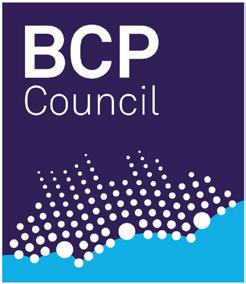
48 Measurement LEVELLING UP
